Veg
Scientist: ‘Eating fruits and veg without phytochemicals would in many ways be analagous to drinking the empty calories of a can of soda’
Our fruit and vegetables are getting sweeter, but at a cost to our health, scientists have claimed.
Research conducted on behalf of New Scientists found that although making the likes of cabbage and Brussels sprouts less bitter may help in the battle to get children to eat them, it takes away some of the very things that make fresh produce so healthy.
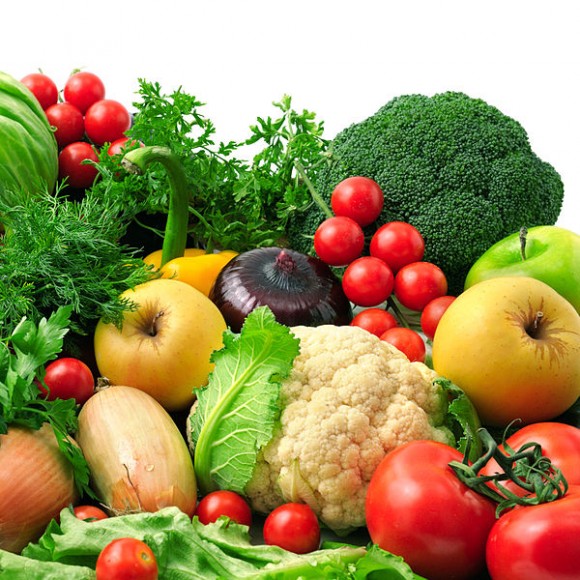
The team looked at research cited in Florida 30 years ago, where white grapefruit were much more popular than sweeter red and pink grapefruits, with growers shipping 27 million boxes of white grapefruit compared to 23 million pink grapefruit, but today, coloured grapefruit are reportedly twice as popular as white varieties.
However, white grapefruit contain 50 per cent more bitter-tasting compounds, phytonutrients, linked to improving the cardiovascular system, than the red and pink grapefruit.
Jed Fahey, a molecular scientist at Johns Hopkins University, told New Scientist: “Eating fruits and vegetables without phytochemicals would in many ways be analagous to drinking the empty calories of a can of soda.
“Yes you could survive on de-bittered fruits and vegetables, and they would help maintain life, but not good health.”
Thousands of phytonutrients have been discovered in fruit and veg. In grapefruit, an ultra-bitter compound, naringin, has been found to have anti-ulcer and anti-inflammatory properties.
Quercetin, a bitter chemical found in broccoli can help protect against lung cancer.
Other surveys have found phytonutrients such as sinigrin, found in Brussel sprouts, cauliflower, cabbage and kale, has anti-cancer properties.
Businesses and individuals can enter online now for their chance at a shot a glory.
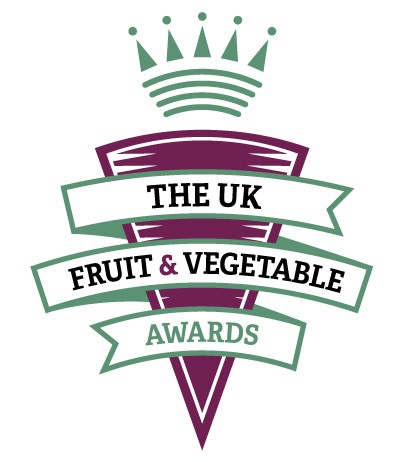
The inaugural UK Fruit & Vegetable Awards are now open for entries, with individuals and businesses urged to stake their claim to be crowned the best at what they do by their peers.
The revolutionary event, supported by headline sponsor Farmcare, sees the industry take full control of the voting process. For the first time, everybody has the chance to have their say on who carries off the prestigious awards.
A wide range of fresh categories gives previously unsung heroes the opportunity The awards are open for entries throughout the summer, with online voting beginning in the autumn.
Full details of how to enter are available at www.fpj.co.uk/awards. Favourably-priced category sponsorships are also still available.
FPJ editor Michael Barker said: “It’s so easy to enter, and you can submit as short an entry as you like, or a more thorough one if you prefer. Unlike other awards schemes, this is designed to be as simple
In the UK since 1980, ice cream prices have fallen by 50 per cent, while fruit and vegetables have gone up by 199 per cent, ODI claims
British-based think tank the Overseas Development Institute (ODI) has recommended that emerging economy governments consider introducing taxes and subsidies to offset wildly differing price changes in junk food and healthy food.
People in newly-rich countries struggle to eat a healthy diet because some common processed foods like cakes and biscuits have become cheaper, while at the same time, the prices of fruit and vegetables have gone up, the ODI argues.
The ODI study, ‘The rising cost of a healthy diet’ which looked at relative food retail prices in Brazil, China, Korea and Mexico – the first of its kind in emerging economies – found that fruit and vegetables rose in price by up to 91 per cent between 1990 and 2012, a price hike higher than other any other food group. On the other hand, some processed foods, like ready meals, dropped in price by up to 20 per cent.
Report findings include: 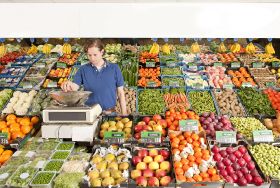
– In Mexico, where almost 70 per cent of adults are overweight and obese, ready meals have become cheaper and the cost of green vegetables has increased since 1990.
– In Brazil, where the prevalence of overweight and obese adults has doubled since 1980, crisps, biscuits, energy bars and sugary drinks formulated to be ‘hyper-palatable’ are much more widely eaten than previously.
– In China green vegetables have become twice as expensive over the last 20 years.
– In South Korea, the price of cabbage, a common ingredient of traditional dishes such as kimchi, has risen by 60 per cent.
– In the UK since 1980, ice cream prices have fallen by 50 per cent, while fruit and vegetables have gone up by 199 per cent.
ODI researcher and report co-author, Steve Wiggins, said: “In Brazil, the consumption of ‘ultra-processed’ ready-to-eat food has risen from 80kg per person per year in 1999 to around 110kg per person per year by 2013. Using the weight of the food as a measure, this is equivalent to each person eating an extra 140 Big Macs a year.”
The report’s authors said the rising cost of fruit and vegetables may be due – in part – to cutting-edge technologies that result in higher-quality vegetables that are cut, trimmed, bagged and washed, and available all year round.
Advances in food manufacturing and falling costs of transport and logistics could explain the drop in prices of some processed foods such as noodles, ice cream, crisps and cookies.
Wiggins added: “In January 2014, in an attempt to curb obesity, Mexico introduced taxes on sugary drinks and energy-dense food. Everyone is watching to see what effects these taxes have, as policy-makers in rich and poor countries struggle to respond to the looming health epidemic caused by changing diets.”
The report recommends that emerging economy governments consider introducing taxes and subsidies to offset these price changes.
Wiggins said: “Research in the UK in 2009 predicted that imposing a VAT-style 17.5 per cent tax on less healthy food and using the proceeds to subsidise fruit and vegetables would save between 3,600 and 6,400 premature deaths a year from diet-related disease.
“Even the lower estimate (3,600) is more than twice as many as the amount of people that die on the roads in the UK and a huge effort is put into road safety.”
EVS2015: Wilco van den Berg of Fresh Produce Centre recommended a collective strategy in order to boost consumption of vegetables
The challenge of feeding a rapidly growing global population while at the same time promoting an increase in vegetable consumption was described as an “opportunity for the sector” at this week’s European Vegetable Strategies conference in Brussels, Belgium.

Wilco van den Berg, manager of market analysis at Dutch group Fresh Produce Centre, revealed that demand was expected to rise by 50% in the next 20 years.
The main task, he said, was to persuade consumers to eat more vegetables, and he recommended a collective communication strategy to promote changes in consumer behaviour.
Projects in the Netherlands such as Veggie Time and Canteen Change have had an impact, he said, as has forming alliances with other parties, including health care professionals.
“We also need to make vegetables more available, at nurseries, in the workplace, in schools, in restaurants,” he said. “Introducing people to vegetables early in their life is a stepping stone to a healthy lifestyle.”
Eating an apple before going shopping causes a person to buy 25% more fruit and vegetables, a study found.
US researchers discovered people can be primed to buy healthy food if they eat a wholesome snack before going to the supermarket.
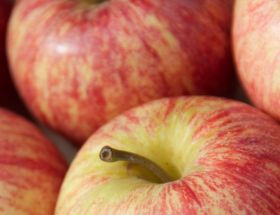
The team, at Cornell University, recommend eating a piece of fruit before hitting the aisles, and argue that supermarkets should offer samples to shoppers to encourage them to make healthy choices.
The researchers carried out three studies to find out if healthy snacks cause shoppers to make better food choices in the shop.
In the first study, 120 shoppers were randomly given either a bit of apple, a piece of cookie or nothing at all when they arrived at the supermarket.
The researchers tracked their purchases and found those who were given the apple bought 28% more fruits and vegetables than those given the cookie.
And they bought 25 per cent more fruits and vegetables than those given no snack at all at the start of their shopping.
Dr Aner Tal, of Cornell University, who carried out the research with his colleague Dr Brian Wansink, said: “What this teaches us is that having a small healthy snack before shopping can put us in a healthier mindset and steer us towards making better food choices.”
Citrus committee is ramping up efforts to open Chinese and Brazilian market
Chilean citrus exports are set to fall in 2014 due to the effects of last September’s freeze and a drought in the IV region, which has cut production across all main varieties.
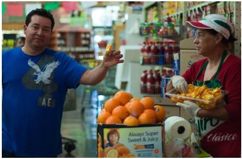
Monserrat Valenzuela of the Chilean Citrus Committee told Fruitnet that the biggest drop is likely to be seen in clementines with shipments forecast to fall by 13% to 27,705 tonnes. Orange exports are expected to be down 9% at 64,130 tonnes, while mandarin shipments are set to rise by 5% to 33,233 tonnes.
Although lemon production is also down, the committee said exports would most likely remain similar to last season as companies seek to take advantage of undersupplied international markets.
The US is the main destination for Chilean citrus, absorbing almost 80% of total export volumes. Asia – principally Japan – accounts for another 10%, while a further 6% is sent to Europe. Valenzuela said one of the committee’s top priorities this season is to gain authorisation to ship to China and Brazil.
R&G Fresh Herbs secures contract to supply foodservice giant with 16,000 100g bags of herb varieties on a weekly basis
The UK’s leading supplier of fresh cut herbs to the supermarket, foodservice and wholesale sectors has landed a deal with a major new customer.

R&G Fresh Herbs has agreed a contract for its Nature’s Flavours brand with foodservice supplier Reynolds to fulfil a weekly order of approximately 16,000 100g bags of 16 different fresh cut herb varieties.
The order represents a substantial part of the overall herb requirements of the foodservice business.
Dean Fowler, R&G’s general manager, said: “With a long history of supplying the finest fresh cut herbs in the UK, R&G is extremely well positioned to fulfil such an order.”
Representatives from Reynolds visited R&G’s main Woking site and toured the production and packhouse facilities as part of the due diligence process.
“The Reynolds team were very happy with what they saw, as R&G adheres to the most stringent quality control standards and operates a state of the art processing and production facility,” Fowler added.
The first branded fresh cut herbs to consistently feature micro-perforated packaging – something that allows the herbs to respire and thus prolong shelf life – has enjoyed significant commercial success since its November 2012 launch.
The Nature’s Flavours brand has supplied Whole Foods Market, Harrods and Ocado amount its retail customers, in addition to ingredients box suppliers such as Hello Fresh, a raft of wholesalers, and now Reynolds, as it makes significant inroads in the foodservice sector.